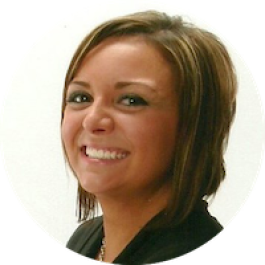
If there’s one mistake Colleen Stanley has seen salespeople make over and over again in her 20-year career as a sales trainer, it’s a failure to ask the simple questions.
A well-timed follow-up like, “Can you give me a recent example?” may not shock anyone with its originality, but it does open the door for the customer to share a story. When that happens, the salesperson can gather the insight they need to build a relationship and close a deal.
Every salesperson knows that the key to effective discovery is to ask open-ended questions, but Stanley, who’s the president of SalesLeadership, has found that most forget to do it because they’re so focused on closing. She often encourages salespeople to make a list of these simple questions that they know they should ask but fail to, and then think about what information they’re missing out on.
The missing information could have helped them gain a deeper understanding of the customer’s issue, learn what their budget priorities are or establish an emotional connection. Without those, a deal isn’t likely to get done.
Who’s going to win the customer? The person who asked all the questions, that’s who.”
“An even more fun exercise is to have them imagine their competitor coming in and asking all of those simple questions,” Stanley said. “Who’s going to win the customer? The person who asked all the questions, that’s who.”
Ultimately, there is no shortcut to building rapport with a customer during discovery. Ask questions too quickly and it can make the customer feel like they’re being interrogated. Fail to ask a follow-up or interrupt them with a pitch, and you may miss out on valuable information.
We spoke with Stanley, Anita Nielsen, who’s the author of the sales enablement book Beat the Bots and the founder of LDK Advisory, and Upwork sales trainer Alex Downey for their best open-ended questions and discovery tips.
The Best Open-Ended Questions for Salespeople to Ask
- Help me understand…
- How does that impact you or your team?
- Tell me about…
- What does that mean for your career?
- What’s not happening that you’d like to see happen?
- Can you give me a recent example?
- What’s making you take a closer look now?
- What’s changed?
- What else?
- What would you do if…?
What’s your philosophy when it comes to asking effective, open-ended questions?
In sales, you get told discovery is important, you know qualification is important, you get told ad nauseam that you have to use open-ended questions. But when you’re in your first meeting with a customer, your mind is not focusing on the types of questions you should be asking. Sales is high pressure and salespeople are taught to get to the ink, so they end up rushing the discovery process — and that’s a mistake. You’re leaving a lot of valuable information behind that you could have turned into additional sales opportunities. I’d say if you’re in an early meeting with a prospect and you start talking about your product any earlier than 45 minutes into it, that’s a mistake.
Help me understand…
This isn’t a question that you can ask right off the bat, but after they give you some information, it can be a great follow-up. The idea behind this type of question is that you want to get a lot of information, but you also want to get information that taps into emotion. If you ask a CIO, “Can you tell me about who reports to you?” that’s fine. But a high-impact question like, “Help me understand your organization structure?” is better. The first question will give you a list, whereas the “help me understand” questions leaves it open for the customer to respond with emotion and context that you can use to build a better relationship.
How does that impact you or your team?
You want to understand not just what the impact is to the company, but also to the people that they serve. For example, if someone said their app has outages all the time, and it’s been a real challenge for the company, my next question would be, “How is that impacting your team?” Now, they may tell you that it’s really frustrating and they’re having a difficult time getting resources and maintaining a crew of people who understand the technology. Then you can ask, “How does that impact you?” In that way, you can progressively get to know who the buyer is and what their motivations are.
Tell me about...
A lot of times, salespeople will ask questions like, “Is there a sales training team that supports you?” Well, goodie, because now you’ve got a “Yes” or “No” answer. That’s not going to get you more of what you need. Instead, if you ask, “tell me about the sales training organization that supports you,” you’re going to hear about whether or not the training is good and how much of a relationship they have with it. You want to get to the organizational dynamics and those driving factors that are actually guiding the decision, and “Tell me about” questions can help you do that.
What does that mean for your career?
If you do things right over the course of the first meeting or the second meeting, you can ask things like, “What does that mean for your career?” Now you’ve shown them how much you care, how much you want to learn, so they’ll be willing to talk about themselves. You can get to that point because you’ve built trust every step of the way.
What’s your philosophy when it comes to asking effective, open-ended questions?
It starts with emotional self-awareness, because that which you’re not aware of, you cannot change and you’re bound to repeat. So during your pre-call planning process, this might mean writing down good curiosity questions and thinking about when you might be triggered by a prospect to present the product too soon. If you have a prospect saying all the right things, you might skip over all of these great questions you need to ask and start product dumping. Or if they’re a challenging prospect, you might get nervous and move to a product dump rather than asking effective redirect questions. Emotional self-awareness leads to emotion management, which leads to the execution of asking consistently good questions.
What’s not happening that you’d like to see happen?
What’s interesting about this question is that you could frame it up as, “What would you like to see happen?” But if you understand the neuroscience of selling, you’ll know that when you have a bad experience, you are going to recall that quicker than a positive experience. So I’m going to ask the reverse question: “What’s not working? What’s not happening?” And people can tell you quicker what’s not working than what is working. So that’s one that I will often ask, and I can get a lot of the story from it.
Can you give me a recent example?
You’ve got to be aware that you might want to start telling versus asking. The more you’ve been in this business, the worse it gets, because you may have heard about a particular issue over and over again. It’s the curse of knowledge. This question is a simple response to that. It’s not a rocket-science question, but I find a lot of salespeople miss it. When I ask for a specific example, the prospect starts telling me their story. It is then and only then that I can start gathering criteria by which I can figure out if I’ve got a solution or not. So that’s a really easy question, and then, be quiet and listen.
What’s making you take a closer look now?
Salespeople often miss this question. It’s a simple question that gets you beyond the presenting problem. Sometimes, companies have the luxury of living with a problem for years, so when you ask “What’s making you take a closer look now?” you can find out that there’s a new board, or the company is being sold. If you don’t ask this question, you might wind up talking about a problem they’re not interested in solving.
Embrace the ‘Elephant in the Room’ Question
There’s a question we call the “elephant in the room.” When we do classroom training, we have a big elephant we bring in that’s about two feet tall, and we call it Eddie. He represents the unspoken objection. If a customer has had a relationship with a vendor, well, change is hard. The salesperson needs to raise that objection saying: “There’s some things we can do that would improve your situation, but let’s be real. You’ve been working here for five years, and if I were you, I’d be wondering, is it even going to be worth the hassle?” Whatever the situation, one way of asking good questions is to deal with a question that’s not being asked. It’s uncomfortable because it may seem like you’re leading with a no, but you’re actually getting to the truth fast.
What are some strategies salespeople should consider during the discovery process?
The worst thing you can do is ask closed-ended questions, because those aren’t going to get you the responses you need. You need to be patient and allow the customer enough time after they’ve stopped talking to add any additional thoughts that they might have. You should also go into every call with a clear objective of what you’re trying to get out of it. Otherwise, your questions won’t have a purpose.
What’s changed?
This is a great question, especially now with everything that’s going on in the world. But things change all the time. Starting a conversation with, “What’s changed since the last time we’ve talked?” is really important, because it could change the trajectory of the conversation dramatically. If it’s a new conversation, you might ask, “What’s top of mind right now?” You always want to be relevant as a salesperson, so it’s a nice pulse check to make sure you have all the information you need before you dive into anything else.
What else?
This is my favorite question of all time. It sounds really silly and very simple, but it’s the best follow-up question I’ve ever found to ask, because customers often want to say more, but they hesitate. Maybe they think that what they have to say is going to bore you, or they didn’t feel the need to go into detail, but it could be very helpful for you. When you ask “What else?” customers tend to open up and give more. You can tag about three what elses onto a question, and, before you know it, you’ll have notes and notes of really useful information.
Ask ‘What is...,’ instead of ‘Why’
This is a verbal trick. If you ask a customer what is the reason for something, it sounds more open and inviting than if you’re asking why something is happening. “Why” has a tendency to make the customer defensive. If I’m on a call with a customer and I asked, “Why did you take this call today?” you might get a defensive answer like, “because it was scheduled for me.” But if you said, “What’s the most important information you’d like to get out of this call?” They’ll be more willing to give you more information.
What would you do if...?
Since we offer people access to remote experts all over the world, one of my colleagues loves to ask clients, “What would you do if you had access to all of the experts in the world?” We’re trying to help them connect to experts, so this helps them think through what experts they’re looking for. Andrew Sykes (founder of Habits at Work) says selling is speaking your future into existence. By asking that question, you’re now talking about what is possible and where we can help you get to if you work with us.
Bonus Tip: If You Find Yourself Getting Impatient, Sing ‘Happy Birthday’ (in Your Head)
One thing we can all get better at as salespeople is patience, and waiting for a customer to finish their thought before jumping in. Some people count to a certain number, but I like to sing “Happy Birthday.” Usually, if I get to the end of the song, the customer will have already jumped in with another thought, or I can start with my, “What else?” “Happy Birthday” isn’t a long song, but it’s just long enough to give you a pause that sounds like you’re really listening and digesting the information. And it keeps you from asking a question too fast and silencing the customer.









.png)